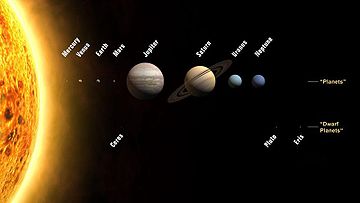The systems science portal
 |
| Complex systems approach |
Systems science is an transdisciplinary[1] field that studies the nature of systems—from simple to complex—in nature, society, cognition, engineering, technology and science itself. To systems scientists, the world can be understood as a system of systems. The field aims to develop interdisciplinary foundations that are applicable in a variety of areas, such as psychology, biology, medicine, communication, business management, engineering, and social sciences.
Systems science covers formal sciences such as complex systems, cybernetics, dynamical systems theory, information theory, linguistics or systems theory. It has applications in the field of the natural and social sciences and engineering, such as control theory, operations research, social systems theory, systems biology, system dynamics, human factors, systems ecology, systems engineering and systems psychology. Themes commonly stressed in system science are (a) holistic view, (b) interaction between a system and its embedding environment, and (c) complex (often subtle) trajectories of dynamic behavior that sometimes are stable (and thus reinforcing), while at various 'boundary conditions' can become wildly unstable (and thus destructive). Concerns about Earth-scale biosphere/geosphere dynamics is an example of the nature of problems to which systems science seeks to contribute meaningful insights.
Selected article -

Systems biology is the computational and mathematical analysis and modeling of complex biological systems. It is a biology-based interdisciplinary field of study that focuses on complex interactions within biological systems, using a holistic approach (holism instead of the more traditional reductionism) to biological research.
Particularly from the year 2000 onwards, the concept has been used widely in biology in a variety of contexts. The Human Genome Project is an example of applied systems thinking in biology which has led to new, collaborative ways of working on problems in the biological field of genetics. One of the aims of systems biology is to model and discover emergent properties, properties of cells, tissues and organisms functioning as a system whose theoretical description is only possible using techniques of systems biology. These typically involve metabolic networks or cell signaling networks. (Full article...)Selected picture

Planets and dwarf planets of the Solar System; while the sizes are to scale, the relative distances from the Sun are not.
'WikiProjects
Selected biography -
Béla Heinrich Bánáthy (Hungarian: Bánáthy Béla; December 1, 1919 – September 4, 2003) was a Hungarian-American linguist, and Professor at San Jose State University and UC Berkeley. He is known as founder of the White Stag Leadership Development Program, established the International Systems Institute in 1982, and was co-founder of the General Evolutionary Research Group in 1984.
He grew up in largely rural Hungary and served in the Hungarian military during World War II. When Russia invaded Hungary in April 1945, he and his family fled to Allied-occupied Austria and lived in a displaced persons camp for six years. In 1951, they emigrated to Chicago, sponsored by the Presbyterian church. Within the year his former commanding officer suggested to the U.S. government that they hire Bánáthy as a Hungarian instructor at the Army Language School in Monterey, California. While living in Monterey, he founded the White Stag Leadership Development Program. (Full article...)Did you know
- ... that the anthropologist, linguist, and cyberneticist Gregory Bateson's most noted writings are Steps to an Ecology of Mind (1972) and Mind and Nature (1980).
- ... that the American ecologist Howard T. Odum in 1950 gave a novel definition of ecology as the study of large entities (ecosystems) at the "natural level of integration".
- ... that a successful experimental system must be stable and reproducible enough for scientists to make sense of the system's behavior, but unpredictable enough that it can produce useful results?
- ... * continuing vertically with a science of design,
Categories
Related portals
Topics
Tasks
 |
Here are some tasks awaiting attention:
|













